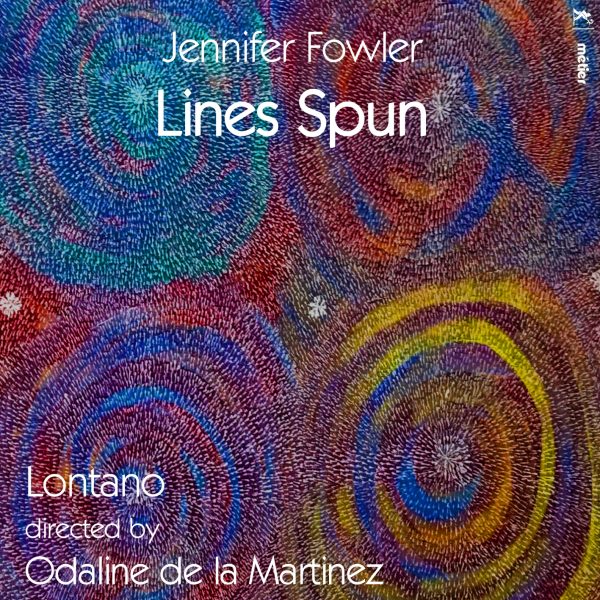The Chronicle Review Corner
This is the opposite to the listener-friendly James Whitbourn also reviewed this week. While he delivers big set pieces fit for broadcast on daytime classical radio, Fowler is late night radio, on a specialist section for people who like their music rare. The title track opens and it’s for flute, cello and piano. It’s an atmospheric piece and not at all unfriendly, slightly mournful and thoughtful. In the sleeve notes she explains her approach, saying that she likes to limit the notes she uses; there’s just so many of them to choose from them. The piece is thus almost entirely monophonic (one note at a time) but it’s interesting: she talks of a cluster of notes revolving around a central note, like a star, though it seems to us it’s more at a molecular level, electrons round an atom. One note at a time doesn’t mean the same note repeatedly and the music has an ethereal, faerie sound. Lady Maisry is slightly less approachable, a setting of a traditional English verse, scored for soprano and piano, in which Lady Maisry dies, possibly in childbirth, before her husband can return from a feast, though his future is not too rosy either. This features soprano and it edges towards being harsh in certain sections.
The Bronte-inspired Letter from Haworth is based on a letter from Charlotte to her friend and teacher, Monsieur Heger, who had failed to reply. The music is mournful, reflecting a passionate soul thwarted, and the words of the letter are included, initially spoken then sung. The music tries to reflect the balance and control in the actual use of words with the obsession of Charlotte. Streaming Up is where it kicks off, relatively speaking, the music getting lively: the title refers to the “continuous stream of energy flowing between the five instruments”, and the piece was written for an ensemble called Asparas. In Buddhist mythology, asparas are female spirits of nature. The monophonic nature of the music is noticeable here. The closing piece is Lament, the most traditional piece: very quiet, it is genuinely mournful and was written in response to the death of a friend. Apart from a couple of more wobbly moments, this is modern music that’s not too difficult. It’s not music to sink into as it’s too prickly, but worth a listen if you like your music sparse and edgy.
@divineartrecordingsgroup
A First Inversion Company
Registered Office:
176-178 Pontefract Road, Cudworth, Barnsley S72 8BE
+44 1226 596703
Fort Worth, TX 76110
+1.682.233.4978





![🎧 Listen now to the @purcellsingers' first single from their upcoming album, #ASpotlessRose! ➡️ listn.fm/aspotlessrose [in bio]](https://scontent-dfw5-2.cdninstagram.com/v/t51.71878-15/642752592_1424641949105789_8815810652567824072_n.jpg?stp=dst-jpg_e35_tt6&_nc_cat=106&ccb=7-5&_nc_sid=18de74&efg=eyJlZmdfdGFnIjoiQ0xJUFMuYmVzdF9pbWFnZV91cmxnZW4uQzMifQ%3D%3D&_nc_ohc=aY1NGfNpOoYQ7kNvwFywQEj&_nc_oc=Adny_eJy5NghVzheyPDiSWhRfFt993NOQhL7x-kkvaKVlViW2CgR1U4kSIOMI2FkNeA&_nc_zt=23&_nc_ht=scontent-dfw5-2.cdninstagram.com&edm=ANo9K5cEAAAA&_nc_gid=ggsZb0PyDCC9-0lt8tv-qQ&_nc_tpa=Q5bMBQFl1kj5ckeaqgYzRYD36SkOd1FsQVFM5T6V0HsIpcv1Pelgewrqm02AMM7J-D9zeAjBDzv5CTH71Q&oh=00_AfzD0fHVPo84xT4rfuBWzAR0S65U_DVXl4_-wbUeF-BjaQ&oe=69AED481)






